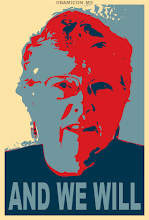For Indian Victims of Sexual Assault, a Tangled Legal Path
As a Cherokee woman charging rape by a non-Indian, Jami Rozell could not go to the tribal court, which handles only crimes by Indians against Indians in Indian country. So after five months of agonizing, she went to the district attorney in Tahlequah, Okla., and testified at a preliminary hearing.
“It was the hardest thing I’ve ever done, get up there in front of my family with all these men I’ve grown up with all my life,” said Ms. Rozell, now 25 and a first grade teacher in another town. But that was not the worst of it. The police, she said she was soon told, had cleaned up the evidence room and thrown out her rape kit, and with it all chances of prosecution.
However, Chief Stephen Farmer of the Tahlequah police says the department had received permission to destroy the evidence after Ms. Rozell initially declined to press charges.
Human rights advocates say such troubled cases involving Indian victims are common. And, American Indian women are voicing growing anger at what they call their disproportionate victimization in crimes of sexual assault, most often committed by non-Indians, and attitudes and laws that they say deter many from even reporting an attack.
“Indian women suffer two and a half times more domestic violence, three and a half times more sexual assaults, and 17 percent will be stalked — and I’m a victim of all three,” said Pauline Musgrove, executive director of the Spirits of Hope Coalition, an advocacy group in Oklahoma.
Now Amnesty International has taken up the issue, calling on Congress to extend tribal authority to all offenders on Indian land, not just Indians, and to expand federal spending on Indian law enforcement and health clinics.
In a report released yesterday, the American arm of the organization said sexual violence against American Indians had grown out of a long history of “systematic and pervasive abuse and persecution.”


Links to this post:
Create a Link
<< Home